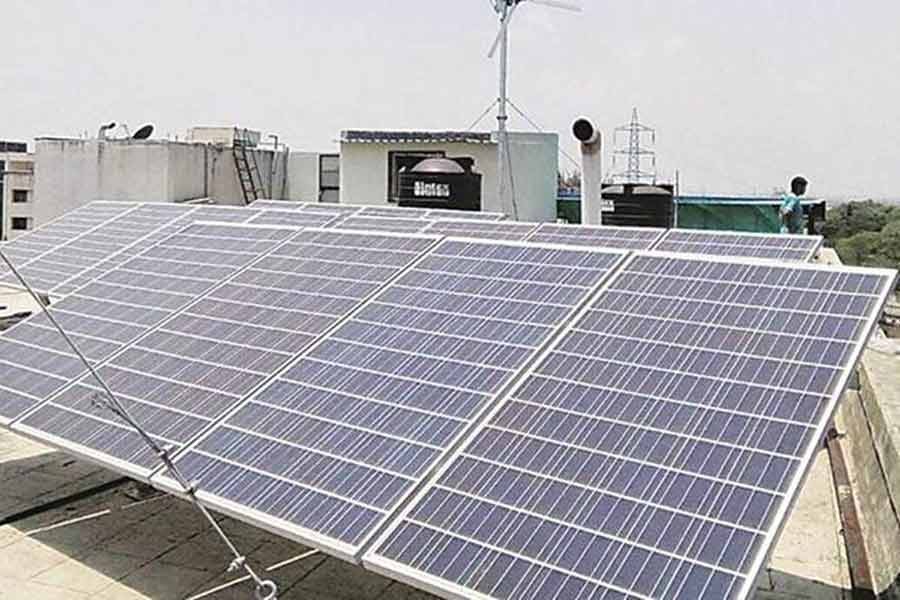
Published :
Updated :

Chief Adviser Professor Muhammad Yunus instructed concerned authorities on Thursday to take initiatives for generating solar power by installing solar panels on the rooftops of all government buildings across the country.
The directive was given during a meeting titled "National Rooftop Solar Programme" held at the state guesthouse Jamuna.
According to the 2024 report of the International Renewable Energy Agency (IRENA), Bangladesh is significantly lagging behind its neighbouring countries in terms of solar power expansion and achieving set targets.
While India generates 24 per cent, Pakistan 17.16 per cent, and Sri Lanka 39.7 per cent of their total electricity demand from solar power, Bangladesh produces only 5.6 per cent of its total electricity demand from solar energy.
As per the Renewable Energy Policy 2025, the target is to generate 20 per cent of the total electricity demand from renewable sources by 2030 and 30 per cent by 2040.
To meet this target, tender processes have already been initiated for 55 land-based solar power plants with a combined capacity of 5,238 megawatts. However, according to officials, the full implementation of these projects may take until 2028.
During the meeting, the Chief Adviser ordered the adoption of a swiftly implementable "National Rooftop Solar Programme". As part of this initiative, he instructed the necessary steps to be taken for the installation of rooftop solar systems on all government buildings, schools, colleges, madrasas, and government hospitals.
The Chief Adviser stated, "Consider whether this rooftop solar installation on government buildings can be carried out through private initiatives. Those who install the systems will maintain and operate them effectively out of their own commercial interest. The government will only provide the rooftop; the rest will be managed by them."
He further said, "We need to gather information about the experiences of the institutions that have already implemented rooftop solar systems. We must understand the types of problems they encountered and work toward resolving those issues."
In this process, government schools, colleges, and madrasas will not have to pay any electricity bills for using solar energy. Additionally, institutions will receive rent for the rooftops used for solar power generation.
Among others present at the meeting were Adviser on Power, Energy and Mineral Resources, Fawzul Kabir Khan; Executive Chairman of the Bangladesh Investment Development Authority (BIDA), Chowdhury Ashiq Mahmud bin Haroon; and senior officials from the Ministry of Power, Energy and Mineral Resources, as well as the Ministry of Secondary and Mass Education.
mirmostafiz@yahoo.com


 For all latest news, follow The Financial Express Google News channel.
For all latest news, follow The Financial Express Google News channel.